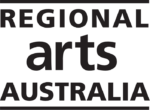My EWF experience began at the bookend of a one-week stay in Singapore. I was gleaning for novel material, hoping to learn more about a number of the characters in my manuscript. This was successful. I amassed notes, photographs, and other keepsakes. And it only seemed natural to me that the Emerging Writers Festival would follow this research. The festival began in three short days. I flew south-east, sleepless, to Naarm.
However, just one day before the festival, I awoke to the unfortunate news that my grandparents’ home in the northern suburbs had burned down. It did not seem real to me. This place was a central location in my story; I never anticipated its destruction nor, ultimately, its demolition. Adorned with helmets, my family stepped inside. Everything was smoke-stained, waterlogged, and disintegrating. There I was gleaning again, though not for novel material. We salvaged notes, photographs and other keepsakes. I scaled the fallen roof tiles and gaped at the sky.
The juxtaposition of these events framed my experience at the Emerging Writers Festival.
I’ve wanted to participate in this festival for several years. Once, I made it midway through the volunteer application form. Another year I received an EWF voucher for twenty dollars. It wasn’t until this year that I finally summoned the courage to attend. Access to hotel accommodation made the biggest difference.
Why had I felt that courage was necessary? I suppose, in previous years, I felt that I didn’t deserve these experiences, that I wasn’t good enough, or perhaps, honestly, that they would not benefit me. Living regionally made attendance difficult. The countless workshops, discussions and events were daunting to me.
‘The juxtaposition of these events framed my experience at the Emerging Writers Festival.’
Elena Hogan, Regional Scribe 2023
It takes courage to adopt new ideas. It takes courage to invite others into our writing practices, to meet them, and for them to meet us. The house fire tangled my insides. I spent my mornings in the hotel bed, my chin pegged to my chest. Yet, thinking of Singapore, my family, and my novel-in-progress, I left behind the hotel room to courageously attend each event I had chosen.
My week began with “Next Big Thing” in The Moat, a cosy place to enjoy the vulnerable words of writers including Aisling Smith (After the Rain), Elfy Scott (The One Thing We’ve Never Spoken About) and Grace Yee (Chinese Fish). Dan Hogan (Secret Third Thing) humoured the room with their wayward poetry. Every poem seemed to be their last, we would applaud, then they would read another. It was hilarious to me.
Another event was the “Writer’s Night School: Writing Family,” facilitated by Elfy Scott. I had introduced myself to Scott the night before and it felt wonderful to be recognised. This event, as with every event, seemed like a continuation of the last. A thread of familiar faces wove themselves through each, we chatted in foyers, across tram aisles and along footpaths. I loosened up in those moments.
The panel “Lunch/Break: Multipractice Storytelling” was hosted by the lawless Diego Ramírez. With one foot atop his other knee, microphone held loosely, Ramírez blasted the audience with a cacophony of vocal effects. I was surprised to see him there; I had previously worked with him as a documentation photographer at SEVENTH gallery. Comforted, I waved back and settled beside my Regional Scribe peers, Levin Shillam and Josh King. We listened to the panellists discuss their practices. Multi-instrumentalist and ethnomusicologist Isobel D’Cruz Barnes, known by ‘Hantu’, conveyed her Malaysian-Australian identity in the context of the Naarm punk scene. Anna Kate Blair, a writer, discussed her forthcoming debut novel, THE MODERN, set in and around the Museum of Modern Art in New York City.
Gradually, I dismantled the impression that facilitators, writers, and attendees were unreachable. Living regionally exacerbates this mindset; when every interaction is online, if it’s an interaction at all, these people seem elusive and beyond reach. The Emerging Writers Festival amended this distortion. I approached Blair, Ramírez and D’Cruz Barnes after their panel to thank them. I shared two of my own notebooks filled with collage materials—preparations for my own novel. They agreed that these were themselves worthy of publication. It was a wonderful feeling.
We were all writers. Granted, we were writers at all stages in our careers, myself being an example of someone at the start of her career—but we were all participating for the same reasons: to involve ourselves, to meet one another and, hopefully, to discover something new. Attending demanded bucketloads of courage and certain repression of my grief, but the reward was boundless support. I felt that I had discovered community.
I’m immensely grateful for this opportunity to participate in the 2023 Emerging Writers Festival as a Regional Scribe. I extend this gratitude to Jes Layton, the EWF staff and volunteers, Haneen Mahmood Martin, Zoya Godoroja-Prieckaerts, and Regional Arts Australia.
Elena attended EWF as a participant of Regional Arts Australia’s Regional Scribes program in partnership with EWF. Regional Scribes is an initiative of Regional Arts Australia supported through the Regional Arts Fund, an Australian Government program that supports sustainable cultural development in regional and remote communities in Australia.


Subscribe to our email newsletter: